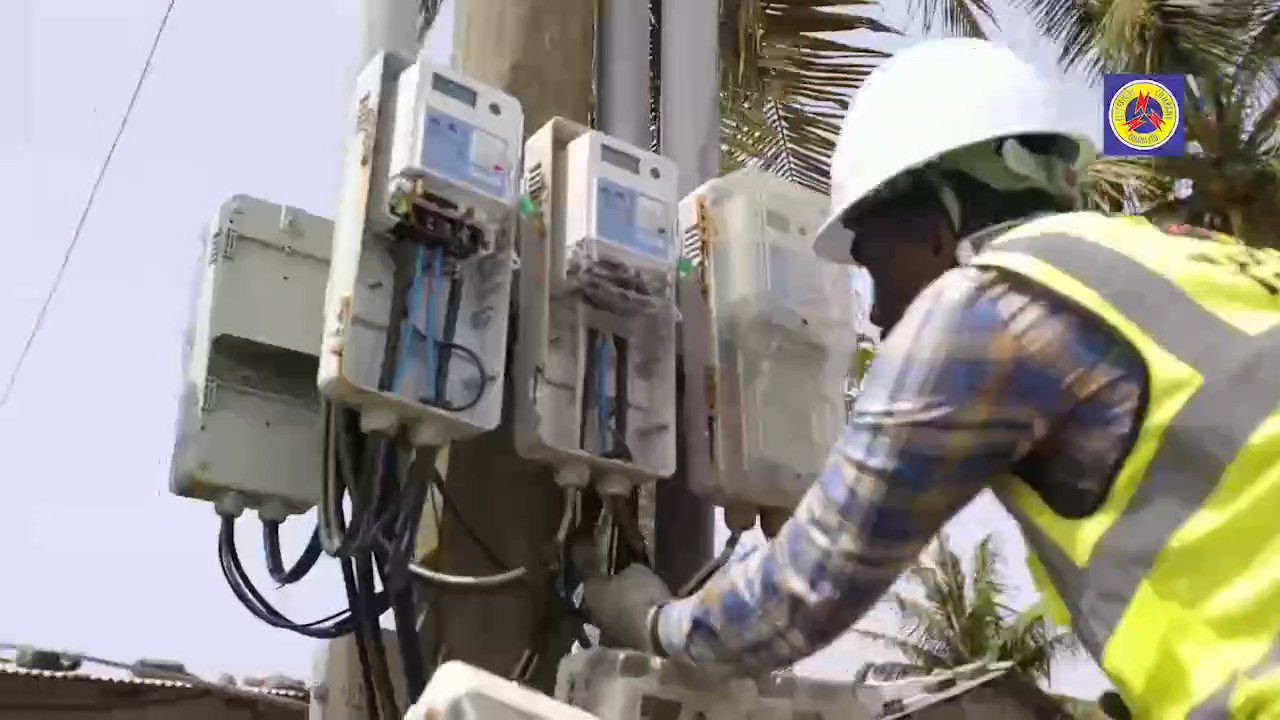Power distributor, the Electricity Company of Ghana (ECG) discovers over 300, 000 illegal connections and counting.
ECG discovers illegal connections
Managing Director of ECG Samuel Dubik Mahama said this is one of the outcomes of ECG’s recent revenue mobilization efforts.
The exercise, which lasted for a month, targeted domestic users, businesses, organisations, ministries, departments and state agencies for power already consumed.
The exercise began on Monday, March 20 and ended on Thursday, April 20, 2023.
Perpetrators being processed for court
Mahama explained that perpetrators are being processed for court on a case by case basis.
He said the outcome of the exercise has met expectations and assured that it will be sustained.
14 days moratorium to pay bills
He urged customers to pay up within 14 days moratorium after bills are dispatched since failure to do so would lead to disconnection as stated in Public Utility and Regulatory Commission (PURC) Regulation, LI 2413.
He advised customers whose bill had delayed to keep paying on account based on the last bill because the PURC Regulation LI 2413 enjoins customers to pay on account of failure to receive their bills.
Make bills payment topmost priorities
Mahama appealed to all customers to desist from illegal connections and make the payment of electricity bills one of their topmost priorities to enable the company keep the electricity supply chain operational since the revenue ECG gathers from customers keeps lights on.
Payment channels
He said customers can pay their bills by downloading the ECG PowerApp on google play store or AppStore or through the USSD shortcode *226# or at any Bank.
GH₵2.5 billion debt recovered
Three weeks into the exercise, the ECG MD announced that ECG has recovered over GH₵2.5 billion out of the over GH₵5.7 billion debt customers owe.
Each year, ECG records 28% losses estimated at GH₵2.8 billion.
Power theft alone accounts for 10% of the losses.
It means ECG loses about GH₵1 billion to power theft each year.
ECG has so far established the existence of 4.5 million customers with prepaid and postpaid being 50 per cent each and the count continues.
A large number of people intentionally steal power just because they do not want to pay for power.
20, 000 illegal meters
Over 20, 000 illegal meters in circulation in the Greater Accra Region were identified to have come from neighbouring Togo and were totally different from meters coming from the Ministry of Energy and ECG.
3 out 5 prepaid customers steal power
ECG discovers that out of five prepaid customers, three are not paying the right amount.
3 out of 5 postpaid customers steal power
In the same vein, out of five postpaid customers, three are not paying for power consumed because they engaged in illegal connection.
Meter bypass
This is because; such customers are stealing power through bypassing power and evading the meter.
Tapping of service lines to the customers’ premises
The widely used method to steal ECG power is meter bypassing and tapping of service lines to the customers’ premises.
Tampering with meters
These meters, even with security considerations, are basically tampered with by meter bypassing and tapping of service lines to the customers’ premises.
Using magnets to lower meter rotation
To temper with this meter, fraudsters place large magnets at sides of the meter to lower the rotation of the aluminium disc, thereby drastically reducing the amount of electricity consumed.
Inserting a magnetic needle to stop or slow the rotating disc
The other method is drilling a hole through the plastic case of the meter and inserting a magnetic needle to stop or slow the rotating disc.
Using contactor to cover up tapping of service lines
Some unscrupulous electricians have also developed a method that uses a contactor (an electromechanical device), which makes tapping into the service lines unnoticed by the utility operators even during an inspection.
- Tuesday, May 6, 2025 Newspaper Headlines - 6 May 2025
- Mahama unveils Code of Ethics for appointees - 5 May 2025
- No system breach, MoMo is safe, secure- MTN - 5 May 2025

